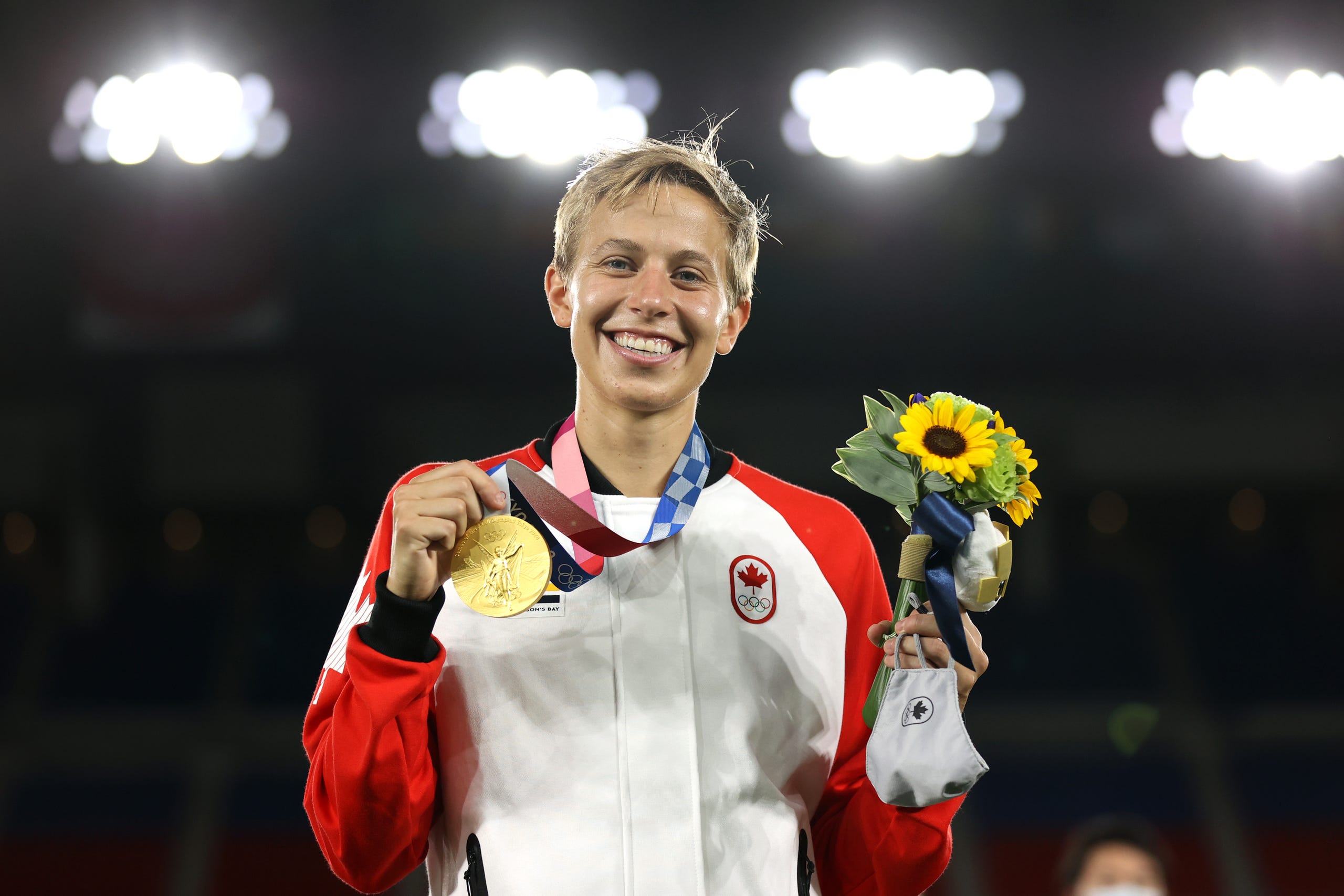YOKOHAMA, Japan — You can play. You can succeed. You can thrive.
You can belong.
Canada midfielder Quinn, one of the first openly transgender athletes to compete at an Olympic Games, is now a gold medalist. The shootout victory over Sweden on Friday night was a huge moment for them and Canada, the team’s first title at the Olympics or World Cup.
But it was an even bigger moment for inclusion. As craven politicians try and demonize people, particularly children, simply for being who they are, Quinn is a powerful symbol that the future doesn’t have to be filled with despair or hate.
There can be acceptance. There can be joy. There can be room on the world’s biggest stage.
"That's such a huge thing for me, just making sure kids know that they have a place in this sport," Quinn said after the game, light glinting off the gold medal around their neck. "Sports bring me so much joy, so hopefully I can pass that message along and be a role model for younger folks, seeing that they can be themselves and they can also have a place here and they can be Olympic champions.
"So I think that's really exciting."
And it is desperately needed.
Transgender kids are already vulnerable, with an elevated risk of suicide and depression. Now there are radical right-wing politicians, mostly in the United States, who are further endangering them as a means of ginning up their base.
They are ramrodding legislation to prevent transgender boys and girls — mostly transgender girls — from playing sports, styling themselves as some noble defenders of girls and young women whose opportunity to compete is being stolen. Never mind that this is very much a solution in search of a problem, with scant evidence that transgender kids playing sports is creating problems or taking anything away from cisgender kids.
Transgender children just want to play with their friends. To feel a sense of belonging in a world that, too often, is inhospitable and cruel.
When Canada took its team photo after the medals ceremony, Quinn was standing next to Christine Sinclair, who has achieved icon status in Canada for what she’s done for women’s soccer. It was a scene that’s been seen millions of times, two teammates smiling and laughing, the impact in its ordinariness.
"These are my best friends my best mates," Quinn said after, "and so (the Olympic tournament), just honestly, it's been a blast. It’s been very demanding, but there's been joy."
The International Olympic Committee has had rules allowing the participation of transgender athletes for more than a decade, but the Tokyo Games are the first to have athletes who are openly trans. In addition to Quinn, Laurel Hubbard competed in weightlifting for New Zealand.
While both have received support, they have faced considerable blowback, as well. But as they always have, Quinn has found refuge in soccer.
"For me, it's just been getting back to why I love the sport, because I know there's a lot of external stuff going on all the time," they said. "Once I step on the pitch, it’s just finding the joy that I found as a kid, trying to take all the pressure away."
The magnitude of this moment is not lost on Quinn, however.
In a powerful video posted earlier Friday on Twitter by CBC Olympics, Quinn spoke of the importance of them being open and visible.
"What inspired me to come out wasn’t so much a point of inspiration but a point of pain," they said. "It was hard for me when the media was misgendering me. I wanted to be represented in my authentic way.
"When you have visibility, it doesn't automatically mean that there's going to be acceptance," Quinn said. "For a lot of folks, I'm the first trans person that they knew personally, and so I think with that there is always a learning curve. … Opening yourself up to others, you could get hurt. But I also think you could evolve really fantastic relationships. That’s something that I’ve done with my teammates, and I feel closer with them because of that."
The video ends with a photo of Quinn and Canada’s other starters standing together, arms linked.
A gold medal can be transformative for the person who wins it. Quinn’s will be transformative for so many others, as well.
Follow USA TODAY Sports columnist Nancy Armour on Twitter @nrarmour.

